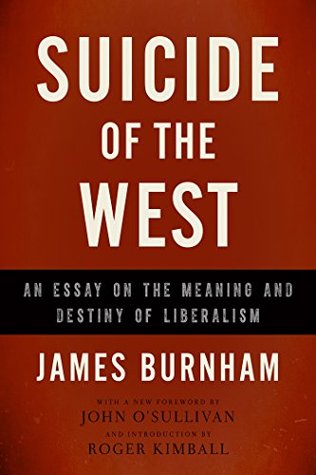More on this book
Kindle Notes & Highlights
Read between
April 9 - October 28, 2017
I cannot forbear taking a moment to taste the irony of this moving declaration of faith. The doctrine that begins by proclaiming its emancipation from all prejudice, superstition and dogma, from all beliefs sanctioned by time, habit and tradition, that opens up every question to free inquiry by every questing mind, that declares its total readiness to follow reason, science and truth wherever they may beckon: it is this doctrine that, we discover at last, is so fixed an absolute that no possible happening now or in any conceivable future could trouble its eternal certainty by so much as a
...more
Does it then follow that many human beings are destined to go hungry over the years to come? Yes, even so. But the liberal ideology—which, by clinging to an optimistic theory of human nature and history, by denying the objective reality of evil and affirming that all social problems can be solved, excludes genuine tragedy—cannot face this tragic fact. That is the real reason why the liberal repeats the proposition, derived not from fact but from doctrine, that we have the ability to provide all men with enough food. When the fact is tragic, his ideology offers him refuge from fact.
Modern liberalism, for most liberals, is not a consciously understood set of rational beliefs, but a bundle of unexamined prejudices and conjoined sentiments.
President Kennedy affirmed this “strategy of peace” (as his concluding phrase correctly named it, since the plan of action takes Peace as the supreme value or goal) in his address of June 10, 1963, at American University in Washington: “I have, therefore, chosen this time and place to discuss . . . the most important topic on earth: peace. . . . I speak of peace, therefore, as the necessary rational end of rational men. . . . We have no more urgent task.” With strict logic the President added the necessary corollary respecting weaponry: “Our primary long-range interest in negotiating [about
...more
There is only one way to escape the conclusions from these logical deductions: by rejecting at least some of the principles from which the deductions start. There would have to be a rejection, in particular, of the quantitative reduction of human beings to Common Man; and a reassertion of qualitative distinctions. Quite specifically, there would have to be reasserted the pre-liberal conviction that Western civilization, thus Western man, is both different from and superior in quality to other civilizations and non-civilizations, from whatever source that difference and superiority are derived
...more


